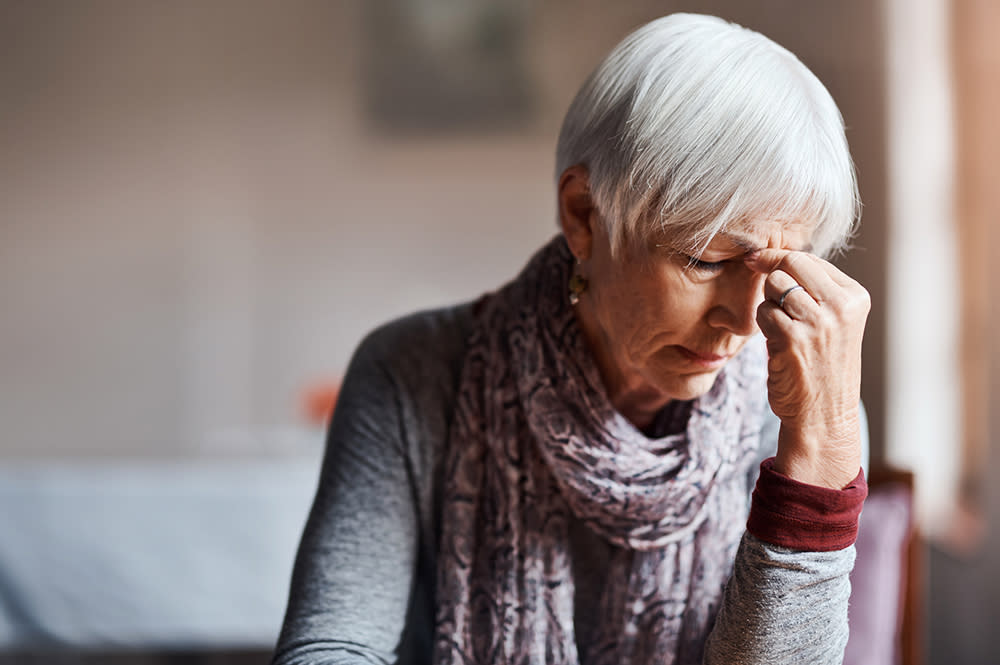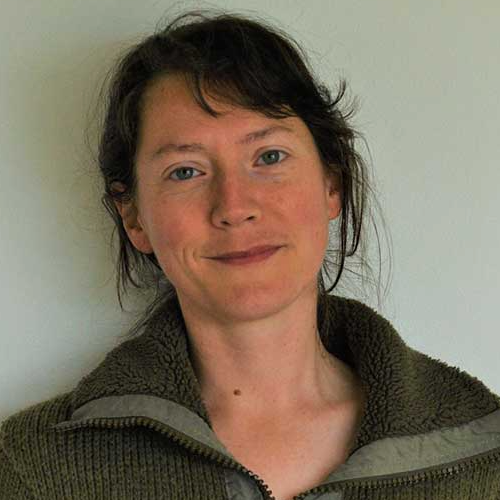Read Time: 7 min | Categories: Mental Health and Sleep
Insomnia in your 50s and Beyond
Leigh Matthews, BA Hons, H.Dip. NT
Share this article
Sleep problems become more common with age and can cause and be caused by a variety of health concerns. A lack of good quality sleep can leave us feeling grumpy, tired, and irritable, and can reduce our ability to focus and stay positive.
Too little sleep can also increase sensitivity to pain, compromise immune function, and make us more prone to accidents and illness.[8] Despite sleep being so important to our health, as many as 61% of post-menopausal women report insomnia symptoms, according to the National Sleep Foundation.
Most people aged 65 or over wake up at least once a night to go to the bathroom.[1] And shockingly, some people over the age of 60 briefly wake up as many as 150 times a night, compared to just five or so times a night as a young adult.[1]
Could this be because we actually need less sleep as we get older? No!
The idea that we need less sleep as we get older is just one of many pervasive (and damaging) myths about sleep. The truth is that we need around the same amount of sleep (7–8 hours) throughout our entire adult lives to feel properly rested. So, why the confusion?
Why do older adults sleep less at night?
Ask anyone over the age of 50 and chances are they can’t remember the last time they got 8 straight hours of sleep. This might be due to trips to the bathroom, pain or medications related to chronic medical conditions, and general wakefulness or feelings of anxiousness or low mood.
The lack of uninterrupted sleep can make it seem like we sleep less when we are older, but many adults make up the lost time through daytime naps and dozing.
In many ways, taking an afternoon nap is a smart approach to sleep. So, if you’re a retiree and feel sleepy mid-afternoon, there’s no need to feel indulgent for catching a quick cat-nap where you can.
Older adults may also experience advance sleep phase syndrome, where they begin feeling sleepier earlier in the evening, go to bed earlier, and then wake earlier than they have in previous years. Light therapy (which helps delay melatonin synthesis) may help in cases where this change in sleep schedule is problematic.
More recently, research suggests that we may experience a decrease in the quality of sleep in our later years due to changes in the brain. So, while we may sleep just as many hours as we did when we were young, we may not get the same level of restorative deep sleep that we need to feel refreshed. [4]
“Pink noise,” a form of sleep sound therapy, could hold promise for promoting deep sleep in older adults, but the research is still very much in its infancy.
Middle Age Sleep Problems
Sleep difficulties become increasingly common around the age of 50, for a variety of reasons. According to the National Sleep Foundation’s 2003 Sleep in America poll, 44% of older adults report one or more nighttime symptoms of insomnia at least a few nights per week.
While hot flashes and night sweats may be to blame for some sleep problems, snoring also becomes more common and more severe post-menopause and in middle age.
Snoring can be a sign of a serious underlying health issue, such as obstructive sleep apnea, meaning that anyone losing sleep due to snoring should get checked out by a qualified physician. Snoring and sleep apnea may also occur due to changes in body composition and weight.
As we age, our metabolism changes, which can lead to centralized weight gain, that is a more apple-shaped physique. This can affect our breathing and cause us to wake multiple times during the night. Often, people with sleep apnea are unaware they have the condition and don’t understand why they still feel tired when they wake up in the morning.
Preliminary research in animals also suggests that a chronically high-calorie intake may affect the body’s internal clock, causing diet-induced premature aging and difficulties with sleep. [5] Also, age-related changes in the brain may disrupt sleep homeostasis and our ability to bounce back after a poor night’s sleep. [6]
Middle age sleep problems can also arise due to worries over family, work, or finances. Changes in life circumstances, such as children leaving home, the breakdown of a relationship, or concerns over work and retirement can make it hard to fall asleep or get back to sleep if you wake up in the early hours.
Movement disorders are also more likely in older adults and can include periodic limb movement disorder and restless legs syndrome (which has been connected to iron deficiency in some people).
These conditions cause people to twitch or move their limbs during sleep, which may disrupt sleep and cause drowsiness during the daytime. Around 45% of older adults have some form of periodic limb movement disorder, which can disrupt their sleep and the sleep of anyone with whom they share a bed. [2]
REM sleep behaviour disorder (RBD) is another cause of sleep problems, and is more common in men over the age of 50. [3] In severe RBD, muscles that are usually immobile during sleep may become quite active, leading people to act out their dreams.
Aging, Digestion, and Key Nutrients for Sleep
For a healthy sleep-wake cycle we need adequate amounts of certain key micronutrients, such as B vitamins, magnesium, as well as macronutrients such as protein. Protein can provide amino acids such as theanine, which can help calm a racing mind, and tryptophan, which we need to synthesize melatonin, the neurohormone that regulates sleep.
Unfortunately, age can affect our appetite and make our bodies both less efficient at absorbing and using nutrients properly. To support good quality sleep, therefore, it’s important to ensure a good intake of all essential nutrients, ideally through diet, or with a highly bioavailable multivitamin and mineral formula, such as Men’s 50+ Most Complete Multi and Women’s 50+ Most Complete Multi.
We also produce less melatonin as we get older, which can make it harder to fall asleep and harder to stay asleep through to the morning. [7] Melatonin levels are usually low in the morning and during the day but rise as daylight fades, prompting you to feel sleepy.
Supplemental melatonin can support sleep by working with the body’s natural cycles to help reset your internal clock. Taken 30–90 minutes before bedtime, melatonin can help you fall asleep faster, stay asleep longer, and get better quality sleep, which helps reduce daytime fatigue.
Melatonin from Webber Naturals comes in a range of forms and dosages, so you can choose the one right for you. These include an easy-dissolve sublingual tablet that can help reduce time to fall asleep in people with delayed sleep phase syndrome (DSPS), and can help reset your sleep schedule if it’s been thrown off by jet lag or shift work.
To further support good sleep, avoid stimulants, such as caffeine, later in the day and limit alcohol intake. This will also help reduce sleep disruptions caused by a need to use the bathroom.
And, finally, be sure to consult your physician if you’re experiencing chronic sleeplessness or have other concerns about your sleeping habits as insomnia and ongoing sleep issues could indicate an underlying health problem.
